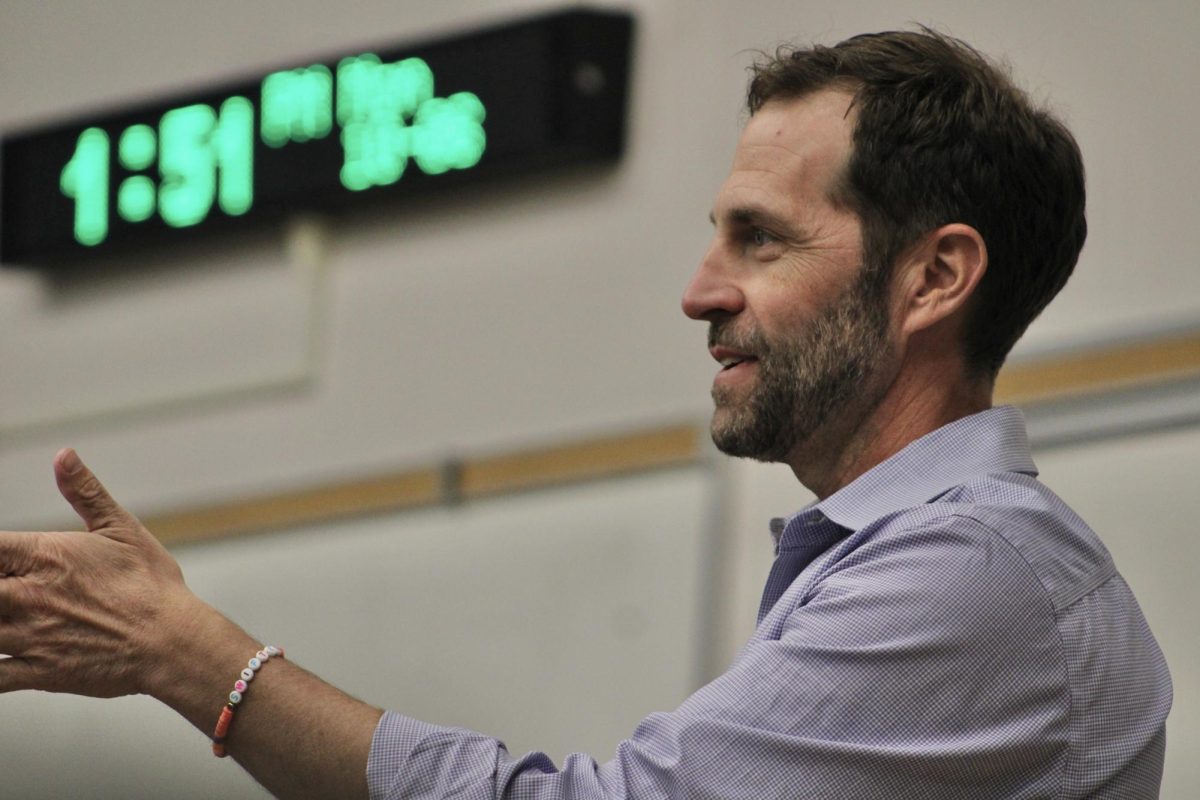All public K-12 schools nationwide received a notice from the Department of Education on April 3 requesting that they sign a form stating that they don’t follow any diversity, equity, and inclusion policies.
If not signed, schools risk losing all federal funding. The mandate argues that DEI is illegal under Title VI of the Civil Rights Act, which prohibits discrimination on the basis of race, color, and national origin.
Under the direction of the Colorado Department of Education (CDE), the CCSD will not sign the mandate, and plans to uphold its existing policies, stating that they “stand by our equity work and [have] not made changes to operations.”
The mandate required all schools to respond within ten days, or by Sunday, April 13. However, after the American Civil Liberties Union and National Education Association sued the Department of Education, the order was postponed until April 24. Under the agreement between parties, no schools can be investigated for DEI policies until the 24th, and no certifications will be acted upon.
The CCSD’s Chief Financial Officer Scott Smith was not immediately available for comment.
The CDE, headed by Commissioner of Education Susana Córdova, released communications about the mandate as well. In the letters, she explained that “The Colorado Department of Education complies with Title VI, its implementing regulation, and Supreme Court cases interpreting Title VI.” Because Colorado schools already follow that law, Córdova believes they should not have to sign the mandate.
Principal Ryan Silva stated that while he was aware of the letter and its requirements, he wasn’t actively involved with decisions regarding what to do about DEI and funding. Other administrators, like Assistant Principal Dr. Krista Keogh, expressed steadfast support for all DEI programs, despite potential threats to funding.
“The superintendent is holding firm in our belief that equity is one of our core values,” Keogh said. “At this time we are continuing the work that we are doing to support what is best for all students.”
Despite worries surrounding threats to the stability of district funding, administration is keen on preserving Creek’s DEI programs.
“We’re going to continue to [support DEI] until legislation changes or our [state] funding could be impacted,” Keogh said. “At that point we will go back to the drawing board to figure out how to make sure that we continue supporting all students.”
When split between school districts in Colorado, it’s estimated that federal funding makes up for about five percent of the CCSD’s funding, or one dollar per every five spent. From a holistic standpoint, the Colorado Department of Education reported that the CCSD’s 2022-23 fiscal year budget was $925 million, 90 percent of which is used for salaries and benefits. Fiscal reports for the 2023-24 year will be released on July 1, but numbers are expected to decrease.
When news of the mandate was released, many students and administrators reacted with concern. At Creek, DEI is still very strongly practiced – through clubs, mental health services, discrimination policies, and more.
“We are a little less reliant on federal funding, but we do rely on federal funding for school meals and special [education],” Keogh said. “If there were to be cuts to [federal funding] we would definitely see some impacts, specifically around staffing for special education. We, as a district, would have to look at how we [would be] funding those programs.”
For club leaders like Latinos Unidos senior president Jocelyn Hernandez-Martinez the news was worrisome; her club focuses the majority of its energy on inclusionary practices.
“Interacting with inclusion in general is something that is required in Latinos Unidos because even if our origin connects us, each of us has a different story that makes us different and gives us the opportunity to share and learn from others,” she said.
To Hernandez-Martinez and other members of Latinos Unidos, DEI policies are deeply personal. “With DEI being in danger, we are risking the decreased sense of belonging towards students and the promotion of discrimination and bias,” she said. “More than that, we [could lose] the strong cultural representation that we have.”
Kimaya Kini, the current Inclusion and Equity Coordinator for Creek’s student body, a position that works with administration in order to recognize prejudice and to prevent and stop it in classrooms.
Kini maintains a largely optimistic outlook on the effects this policy could have in Creek.
“I think people tend to estimate policy over perspective,” Kini said. “We have to be aware that despite what this policy does, we can still be in control of the way we perceive information, [such as] understanding what’s true and what’s not.”
Like many other students and admin, Kini advocates for support for DEI.
“Just because President Trump decides that there isn’t a need for diversity, equity and inclusion doesn’t mean that it’s no longer an issue,” she said. “Each of us can [acknowledge] that those issues matter and that there are systemic biases that have prevented certain groups from succeeding to the same degree. We still have to create equitable solutions.”
Even so, Kini’s prevailing belief is that despite the notice by the Department of Education, Creek’s school culture can remain inclusive and welcoming. “It’s important to understand that our school culture is not defined by a federal policy,” she said.









